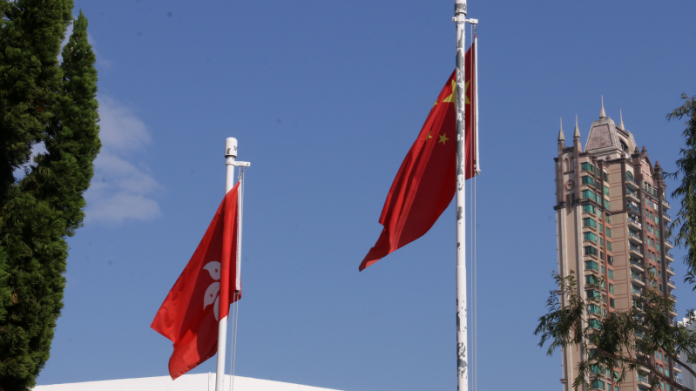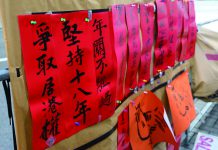Three generations of Hongkongers show how sentiments towards China are changing
By Rivers Zhang & Nannerl Yau
Anyone browsing Hong Kong social media on November 17, 2015 could not have failed to notice the big showdown set for that evening. Hong Kong’s world cup qualifier against China at Mong Kok stadium was much more than a football match. Inside the stadium, Hong Kong fans booed the national anthem and held up signs saying “Hong Kong is not China”. Emotions were just as highly charged outside the stadium – including at the outdoor screenings of the match in various neighbourhoods.
Fung Long-hei, then an 18-year-old student, watched the match with other Hong Kong supporters at one such screening in Sham Shui Po. Fung, born in Hong Kong in 1997, the year the former British colony was transferred to Chinese sovereignty, was clear where his allegiances lay as he cheered on the local team and swore at its opponents.

Fung’s antipathy towards China is not restricted to the football pitch – like many of his generation he defines himself as a Hongkonger rather than a Chinese, unlike the Hong Kong people of his parents’ generation.
In the 20 years since the handover, the degree to which Hong Kong people have identified with some form of Chinese identity has seen ups and downs, but in recent years, the trajectory has been downwards. The University of Hong Kong’s Public Opinion Programme has been tracking Hong Kong people’s identity since 1997. Between 2008 and 2016, those who see themselves as a Hongkonger or a Hongkonger in China rose from 47.4 per cent to 63.7 per cent while those who identified as Chinese or Chinese in Hong Kong fell from 47 per cent to 33.9 per cent. The figures are even starker when they are broken down into age groups. For 18 to 29-year-olds, those who identify as Hongkongers in a broad sense rose from 58.3 per cent to 83.8 per cent, while those who identify as Chinese in a broad sense dropped from 41.2 per cent to 13.3 per cent in the same time period.
The degree to which Hong Kong people identify with being Chinese is inextricably linked to how they perceive China itself and, according to Brian Fong Chi-hang, a professor at the Education University of Hong Kong, is a reflection of “generational politics”.
“Each generation experiences important historical signature event[s]. These shape that generation’s world view,” he says.
Lau Man-yee, a secondary school liberal studies teacher, was born in Hong Kong in 1967, a year in which Hong Kong was rocked by violent riots against colonial rule that were inspired by the Cultural Revolution in the Mainland.
Her memories of China from her childhood are of visiting relatives with her parents – they often had to bring a lot of clothes and food because resources were scarce. “But after I grew up, it was no longer a must to bring stuff when we visited our relatives,” she says.
Despite China’s remarkable economic growth in recent decades, Lau still retains an image of the Mainland as a bland place. “When you entered a department store in mainland China, it was like all the clothes were blue and grey, and you had no alternative colours.”
For a long time, this image stayed with Lau and so she did not harbour high hopes for the country’s economic and democratic development. “When I was young, I wouldn’t demand or expect that the Mainland should develop in a very ideal way, because it really was very backward,” she says.














































